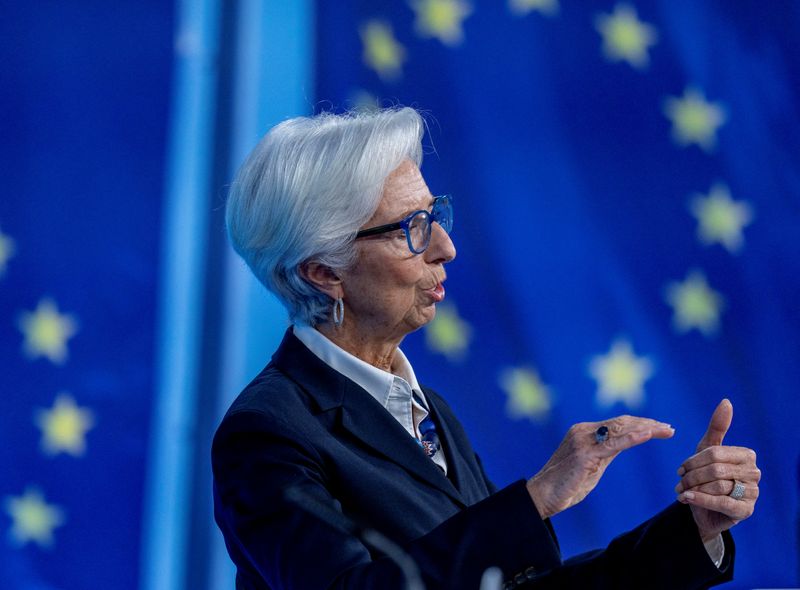FRANKFURT (Reuters) - Euro zone inflation could still fall below 2% next year, a fresh survey published by the European Central Bank showed on Friday, just a day after the bank warned about growing consumer price pressures.
The ECB kept policy unchanged on Thursday but finally acknowledged mounting inflation risks and even opened the door to an interest rate increase this year, in a turnaround for a bank that has kept policy ultra-easy for the past decade.
Inflation this year is seen at 3%, according to the ECB's Survey of Professional Forecasters, below the bank's own projection for 3.2%. In 2023, price growth could slow to 1.8%, the survey showed, in line with the ECB's own expectation.
Inflation in the 19-nation currency bloc hit a record high 5.1% last month, more than twice the ECB's 2% target and also well above projections, indicating that the bank is struggling to fully understand current price trends.
Responding to persistent overshoots in recent quarters, ECB President Christine Lagarde said that risks were now "tilted to the upside", suggesting that higher readings were still possible before a decline later in 2022.

The survey, normally a key input in policy discussions, showed inflation then picking up to 1.9% in 2024 and to 2% in the longer-term, defined as 2026.
The survey also saw this year's economic growth at 4.2%, in line with the ECB's December projections. It is then seen slowing to 2.7%, below the 2.9% previously projected by ECB staff.
